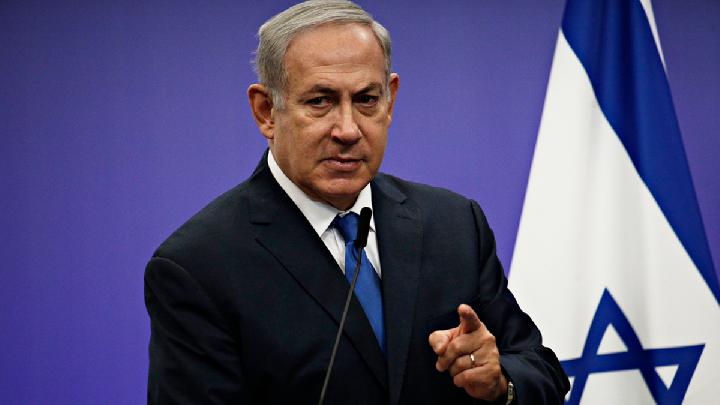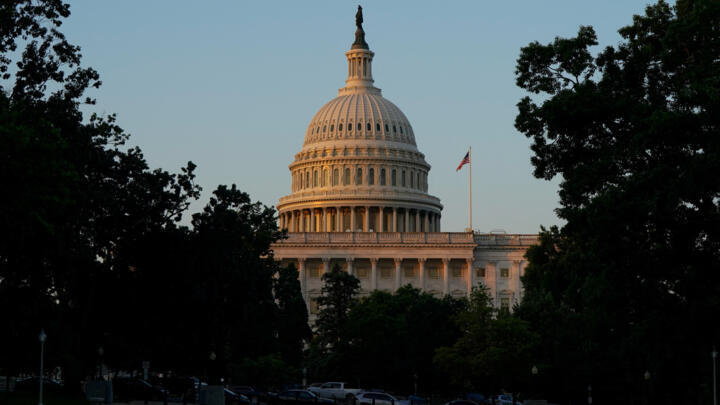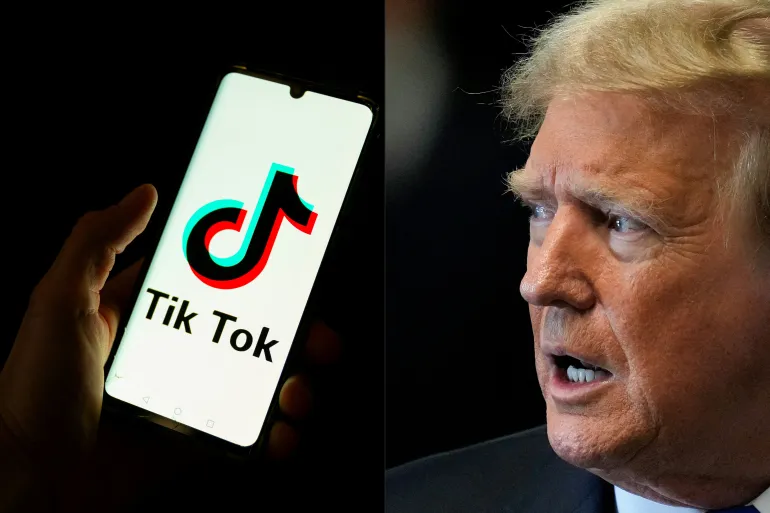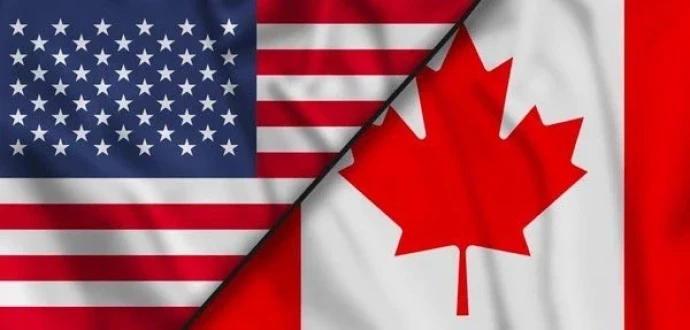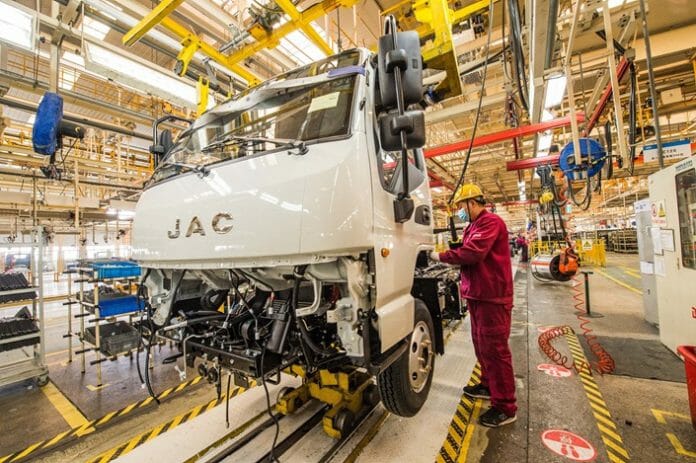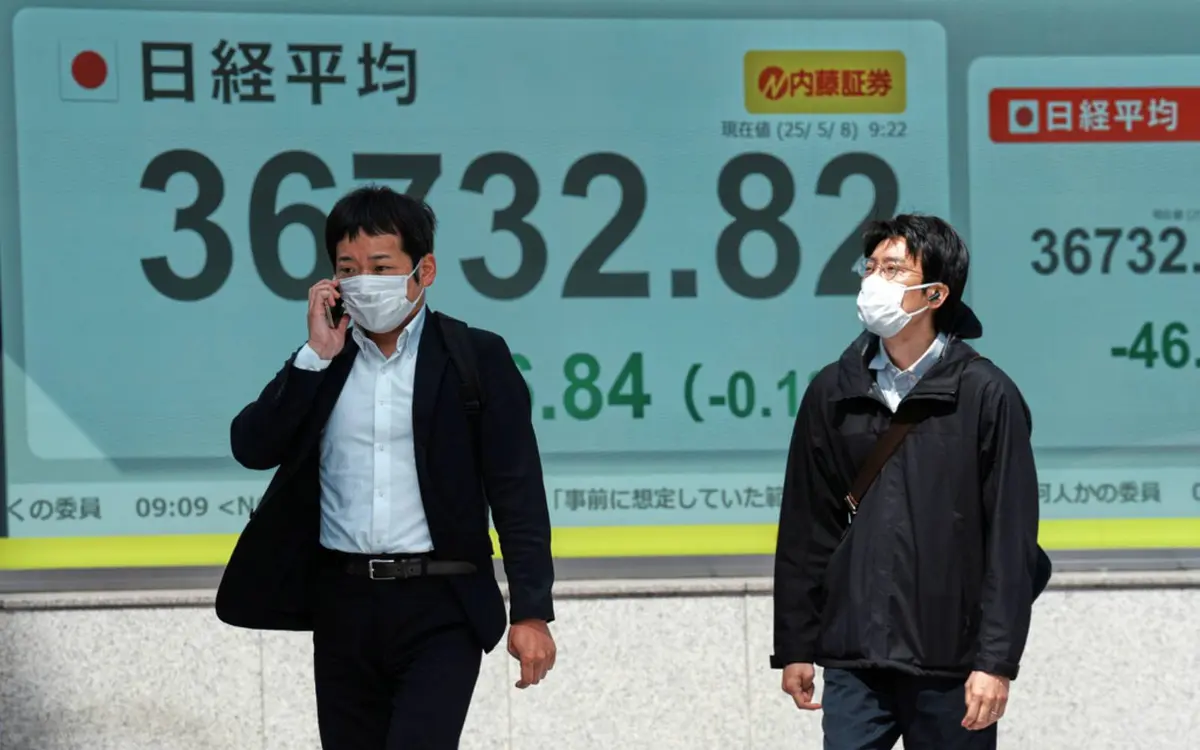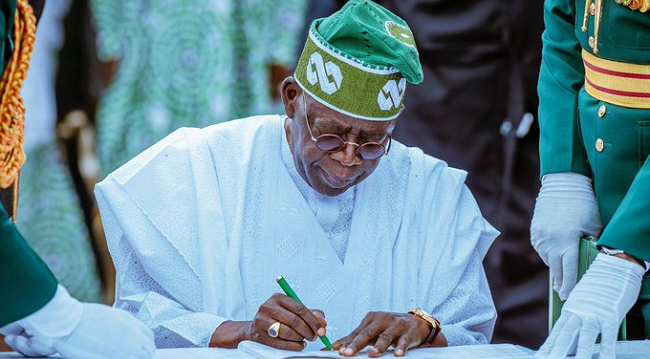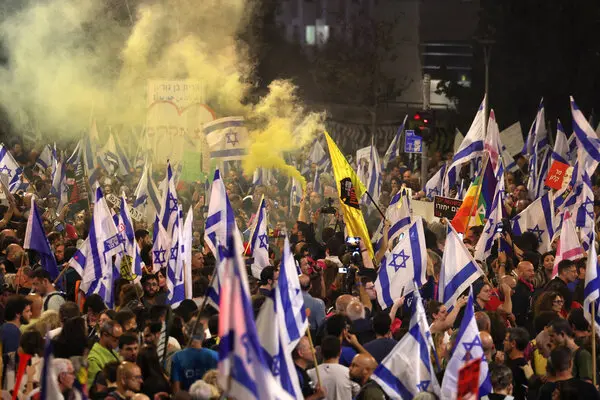By Ayomide Otitoju
Tens of thousands took to the streets across the Middle East on Friday in a wave of coordinated protests following weekly prayers, denouncing Israel’s recent strikes on Iran and expressing anger toward the United States, widely seen as Israel’s key ally.
In Tehran, demonstrators marched with Iranian and Hezbollah flags, chanting anti-Israel and anti-U.S. slogans while holding up photos of Iranian commanders killed since the outbreak of hostilities. State television described the demonstrations as “the Friday of the Iranian nation’s solidarity and resistance,” and broadcast images of large crowds gathered in cities including Tabriz and Shiraz.
One placard read: “I will sacrifice my life for my leader,” referring to Supreme Leader Ayatollah Ali Khamenei.
Leading Friday prayers in Tehran, Mohammad Javad Haj Ali Akbari accused Israel of launching a “psychological war” aimed at turning the public against Iran’s government. “This attack was born of despair,” he declared, according to the state-run IRNA news agency.
The protests follow a dramatic escalation last week, when Israel launched a powerful air assault on Iran, prompting a retaliatory missile barrage from Tehran. The tit-for-tat attacks have sparked fears of a broader regional conflict, drawing in Iran-backed groups in Iraq, Lebanon, and Yemen.
In Iraq, thousands of supporters of influential Shiite cleric Moqtada Sadr rallied in Baghdad’s Sadr City and other cities, chanting, “No to Israel! No to America!” Sadr, while often critical of Iranian influence in Iraq, retains a mass following among the country’s Shiite majority.
“Israel and the Americans are not fighting over Iran’s nuclear programme. What they want is control over the Middle East,” said a 54-year-old taxi driver participating in the protest.
In Beirut, Hezbollah supporters filled the streets of the southern suburbs, waving Hezbollah, Iranian, and Lebanese flags. Protesters included men, women, and children, many carrying portraits of Ayatollah Khamenei.
“It is my duty to stand with Iran against the Zionist Israeli enemy,” said 60-year-old Adnan Zaytoun. Although Hezbollah has so far refrained from directly entering the fray, supporters say they are prepared to defend themselves if attacked.
“We won’t support war, but we will fight back if they come for us,” said 18-year-old student Fadel Saad.
Meanwhile, in Yemen, tens of thousands gathered in the capital, Sanaa, and other cities in rallies organised by the Houthi movement, a key Iranian ally. The group’s media outlets reported widespread participation in what they described as a show of resistance against Israeli and American “aggression.”
As tensions continue to rise, international observers warn of the growing risks of regional escalation, with the potential for more militant factions to enter the conflict.

